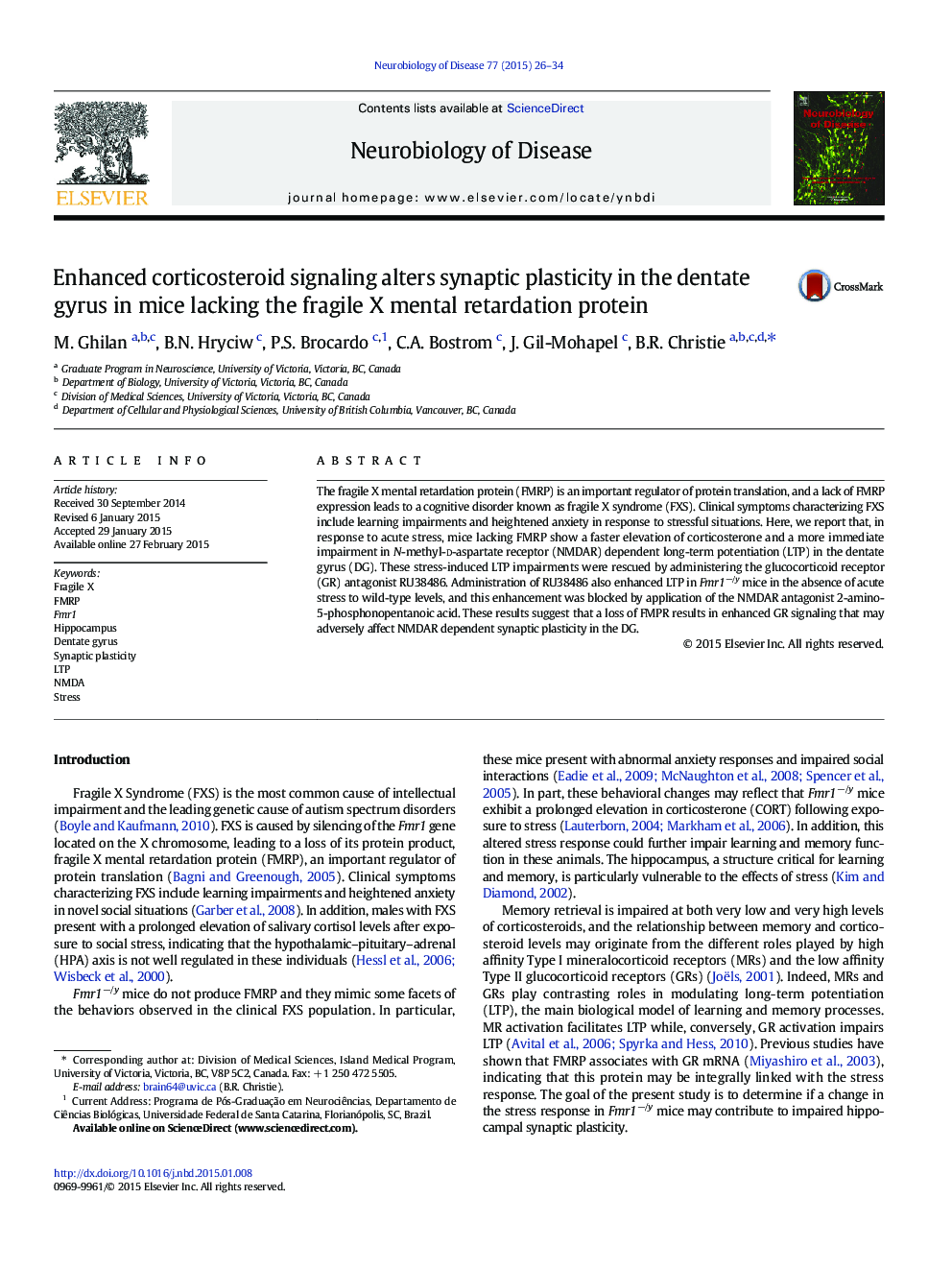| Article ID | Journal | Published Year | Pages | File Type |
|---|---|---|---|---|
| 3069339 | Neurobiology of Disease | 2015 | 9 Pages |
•Stress produces more immediate increases in corticosteroids in FXS animals lacking FMRP.•Dentate gyrus LTP is more rapidly affected by stress in FXS animals.•Blockade of glucocorticoid receptors restores synaptic plasticity in FXS mice.•Synaptic plasticity in the CA1 subfield is not affected by stress in mice.
The fragile X mental retardation protein (FMRP) is an important regulator of protein translation, and a lack of FMRP expression leads to a cognitive disorder known as fragile X syndrome (FXS). Clinical symptoms characterizing FXS include learning impairments and heightened anxiety in response to stressful situations. Here, we report that, in response to acute stress, mice lacking FMRP show a faster elevation of corticosterone and a more immediate impairment in N-methyl-d-aspartate receptor (NMDAR) dependent long-term potentiation (LTP) in the dentate gyrus (DG). These stress-induced LTP impairments were rescued by administering the glucocorticoid receptor (GR) antagonist RU38486. Administration of RU38486 also enhanced LTP in Fmr1−/y mice in the absence of acute stress to wild-type levels, and this enhancement was blocked by application of the NMDAR antagonist 2-amino-5-phosphonopentanoic acid. These results suggest that a loss of FMPR results in enhanced GR signaling that may adversely affect NMDAR dependent synaptic plasticity in the DG.
